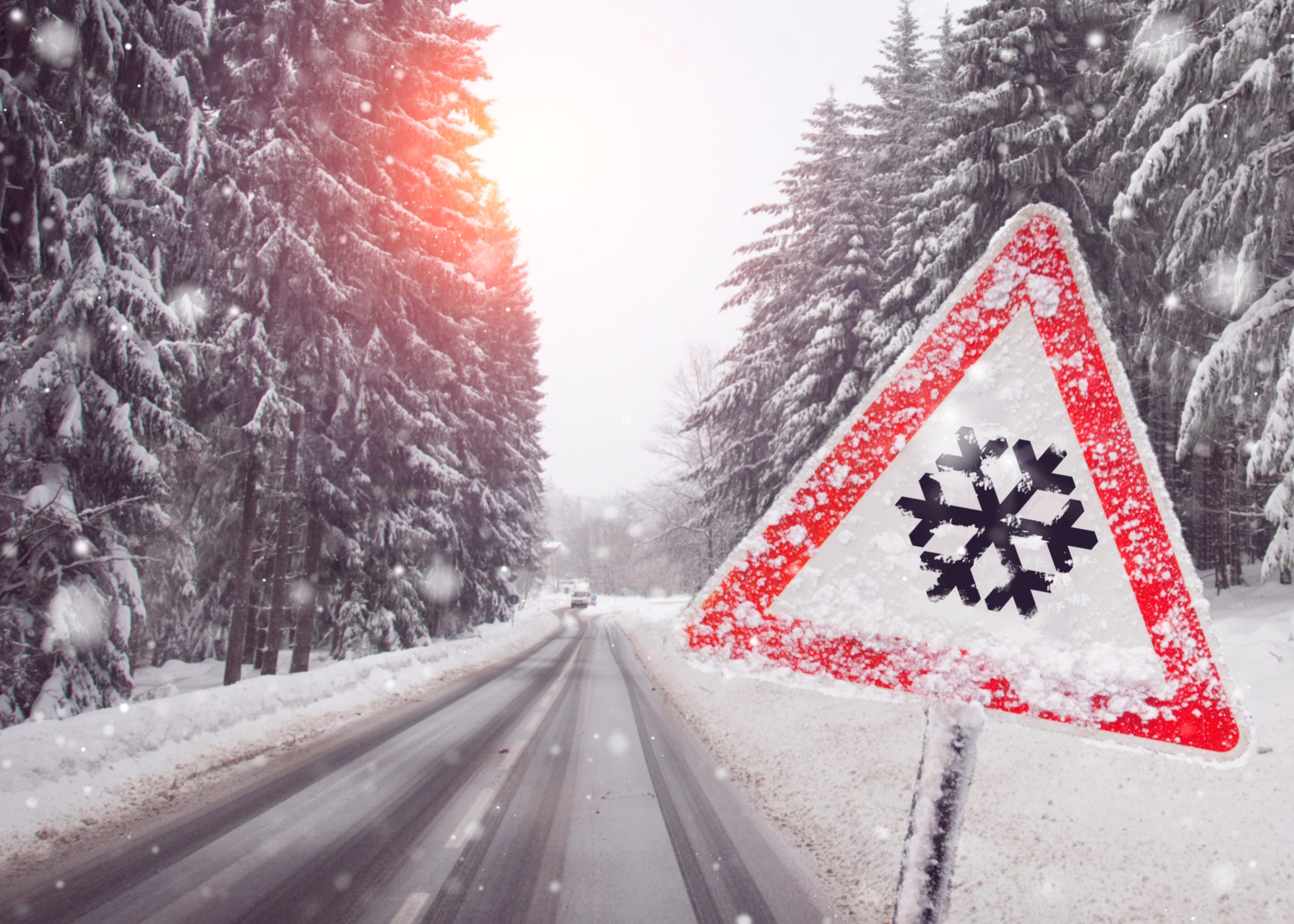By Adrian Karver, Regional Safety Manager
 Winter is upon us and with it comes the opportunity for holiday time with family, snow sports, indoor activities and more. Winter also brings cold weather, snow, ice, and all the risks associated with those challenges. The best way to stay safe through the winter is to be prepared ahead of time so that when the weather turns bad, we are ready for it.
Winter is upon us and with it comes the opportunity for holiday time with family, snow sports, indoor activities and more. Winter also brings cold weather, snow, ice, and all the risks associated with those challenges. The best way to stay safe through the winter is to be prepared ahead of time so that when the weather turns bad, we are ready for it.
To prepare yourself and your family for winter risks, we encourage you to take the following steps:
Dress for the conditions
Winter weather can bring rain, freezing rain, snow, sleet and everything in between. Having the right outerwear can make all the difference if you must go outside in these conditions.
 Boots: Sturdy, insulated boots with a waterproof liner or treatment are the best to keep your feet warm and dry. Avoid boots that are not waterproof, sneakers and other warm season footwear.
Boots: Sturdy, insulated boots with a waterproof liner or treatment are the best to keep your feet warm and dry. Avoid boots that are not waterproof, sneakers and other warm season footwear.- Base layer: An insulated base layer of long underwear and warm socks, preferably made of a synthetic material that will not absorb moisture.
- Outer layer/jacket: Layering your outer clothing with a mid-layer (light jacket, sweater, etc) and a waterproof/resistant outer layer (jacket) will allow for options to shed a layer if your activities make you overly warm and to add a layer back on if you begin to get cold.
- Hats, scarves, gaiters, and gloves: Keeping your head, face, neck, and hands covered and warm with waterproof, insulated coverings are also very important. These parts of our body are farther from our core and can become cold more quickly if they are not covered.
- Extras of all of the above: If you are going to be outdoors away from home, make sure to pack additional warm/dry clothes to change into if you were to get wet and/or start to get cold due to perspiration.
- Cotton is not your friend: One thing to avoid with your winter weather outerwear is anything made of cotton. Cotton absorbs moisture and will cause your clothing to stick to you and accelerate the cooling process, making it harder for your body to stay warm.
Working outside in winter is hard work
Shoveling snow, running a snow blower, splitting and stacking firewood, or even just taking a walk in deep snow is much more of a workout than most people think. You should prepare for these activities in the same way you would for an exercise session:
- Stretch before starting: Muscles strains can happen even in the coldest of conditions.
- Drink plenty of fluids: You may not think you are sweating as much when it is cold, but you can and will sweat enough that you could easily become dehydrated. Drinking water or sports drinks are best. Avoid alcohol, energy drinks, coffee, soda, and other high sugar/high caffeine drinks.
- Take frequent breaks: Stopping to rest, hydrate, and go inside for some warmth can help to keep you from overexerting or injuring yourself when working outside in winter. If you feel like you are pushing yourself too hard, you likely are.
Have emergency supplies in your vehicle at all times
Gathering an emergency supply kit in case you were to break down or get stranded due to winter weather:
- Flashlight: A bright flashlight can provide much-needed light to either work on getting back on the road or signal to others for help. It’s smart to keep extra batteries in your emergency supplies kit as well.
- Bag of traction material: To get your car unstuck, pour non-clumping kitty litter, sand, or rock salt in the path of your tires.
- Snow shovel: If snow starts piling up around your car on the side of the road, you’ll need a shovel to help you clear a path or uncover your car. Keep your car visible to rescue teams by limiting the amount of snow surrounding it or covering your taillights.
- First aid kit: A basic first aid kit can come in handy in the event of minor scrapes or pains, but even more so if you’re stranded. If you take daily medications, you should also pack extras away in your kit.
- Ice scraper: During a deep freeze or emergency situation, you don’t want to waste time — or your car’s battery — waiting to defrost a thick sheet of ice on your windshield.
- Jumper cables: Speaking of batteries, you’ll need to be able to jumpstart your car if the battery goes dead.
- Water: Dehydration is a serious threat when you’re stranded. Keep a large jug of water in your car for emergencies. Replace the water every few months since it may go through extreme temperature changes inside your car.
- Blanket: Pack a large, thick blanket away in your car to keep you warm or to use as padding in case you need to work on your car.
- Cell phone charger: This is already an essential for most drivers, but it won’t hurt to add an extra charger with a lighter adapter to your kit. Of course, this assumes you have enough gas and battery to keep your car running, so consider packing a portable phone charger too.
- Reflective triangles: Breaking down on the side of the road can put you at risk for passing drivers, especially in low visibility conditions. Put out reflective triangles to make your car more visible and protect from any hazards.
- Non-perishable snacks: Granola bars, nuts, crackers, dried fruit, and jerky are a few good options. Like with water, you should replace these every few months or sooner so they don’t expire.
- Matches: Waterproof matches or a lighter can provide some light and warmth in case of emergency, and these small items hardly take up any space in your kit.
- Toolkit: Similar to the first aid kit, a basic toolkit can be useful year-round in your car. From small repairs to changing a tire, keep these on hand in case you need them.
- Emergency contact info: Print out an emergency contact sheet to keep in your car just in case your phone dies and you don’t have access to a charger. You may be able to borrow someone else’s phone to call for help or contact your loved ones to let them know you’re safe.
Winter can be a wonderful time of the year if we take the right steps to stay warm, dry, and safe when we go outside. Preparation can make all the difference between you and your family risking your health in the cold, and having a fun, and safe time when winter comes knocking. Stay safe out there!
 Boots: Sturdy, insulated boots with a waterproof liner or treatment are the best to keep your feet warm and dry. Avoid boots that are not waterproof, sneakers and other warm season footwear.
Boots: Sturdy, insulated boots with a waterproof liner or treatment are the best to keep your feet warm and dry. Avoid boots that are not waterproof, sneakers and other warm season footwear.